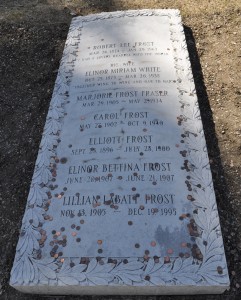
In ‘Why I Write’ (1946), George Orwell begins:
From a very early age, perhaps the age of five or six, I knew that when I grew up I should be a writer. Between the ages of about seventeen and twenty-four I tried to abandon this idea, but I did so with the consciousness that I was outraging my true nature and that sooner or later I should have to settle down and write books.
Ah! ‘Settle down and write books’: so simple, so easy. And from one who wrote in awful – sometimes dangerous, ultimately fatal – physical and mental circumstances, one of which he captured in this great first sentence from ‘England, Your England’ (1940):
As I write, highly civilised human beings are flying overhead, trying to kill me.
In high school, my more dismal essays were returned with this legend in large red letters: ‘Semper Orwellum!’ I took it as my motto, though I learnt, over time, it was a standard I could live up to neither as a writer nor as a person.
If one takes nothing else from Orwell the writer, it is the virtue of self-discipline. In A Moveable Feast, Hemingway describes the smelly, cold Paris garret in which he wrote just after World War I. But after a day of writing, he went home. Orwell was home.
I think of Orwell when, as this morning, I chase topics across the internet like a beagle distracted by many scents.
From The Balance Sheet (The American Prospect) I clicked through to a lengthy Economist essay on the lessons of the ‘30s: ‘There could be trouble ahead’ (well worth a read). Accompanying it is a picture of a line of marchers in the ‘30s walking down a rural road bearing a banner ‘Jarrow Crusade’.
I’ve been to Jarrow, a hard, poor town opposite Newcastle at the mouth of the River Tyne. I was there because, fifteen hundred years ago, Jarrow was the site of an important monastery. The most famous of its monks was the Venerable Bede, the first British historian.
So, what was the ‘Jarrow Crusade’? I Googled it and discovered it was a march on London in 1936 that started on the Tyneside to protest the Depression’s lack of work and poverty. Like the Bonus Army in the US, I thought.
That made me think of a line from a James Keelaghan song, ‘Boom Gone to Bust’ (1989) on his brilliant ‘Timeline’ album. He describes how his father ‘started east in the thirties’ from the prairie provinces with ‘the On to Ottawa men’. So, the Canadians marched, too, I learnt after Googling the phrase.
Occupy Wall Street has many progenitors…. And thus passed an hour I could have been writing.
Ironically, I’d marked the morning to write on Lorin Stein’s glowing review in the NYRB (Dec. 8) of Ben Lerner’s new novel, Leaving the Atocha Station. I don’t read reviews of contemporary fiction because I don’t read current novels. But a picture of Roger van der Weyden’s ‘The Descent from the Cross’ (ca. 1435) accompanied the article. So, I read on.
You will have perceived a pattern….
Lerner’s novel is about a young poet, like Lerner, who gets a grant to do research in Spain. There, he spends his time, mainly, getting high, wandering Madrid’s museums and drowning in internet porn – free associating, self-absorbed.
An interesting review, but then half way through I encountered this passage:
…and certain poems by Lerner sound a lot like Adam [Atocha Station’s protagonist], for instance the title poem of his most recent collection, Mean Free Path:
I finished the reading and looked up
Changed in the familiar ways. Now for a quiet place
To begin the forgetting. The little delays
Between sensations, the audible absence of rain
Take the place of objects. I have some questions
But they can wait. Waiting is the answer
I was looking for. Any subject will do
So long as it recedes.[1]
At this point I needn’t explain why that last line hit me. But I’m off to Porter Square Books to find Leaving the Atocha Station[2] and Mean Free Path.
I should be writing.
Notes
1. According to Wikipedia, ‘In physics, the mean free path is the average distance covered by a moving particle (such as an atom, a molecule, a photon) between successive impacts (collisions) which modify its direction or energy or other particle properties.’ (Footnote omitted.) Good Lord! What an obscure, wonderful title! And a great poem!!
2. A few minutes dipping in to Atocha Station outside the bookstore suggested Lorin Stein understated how good it is.
Recent Comments